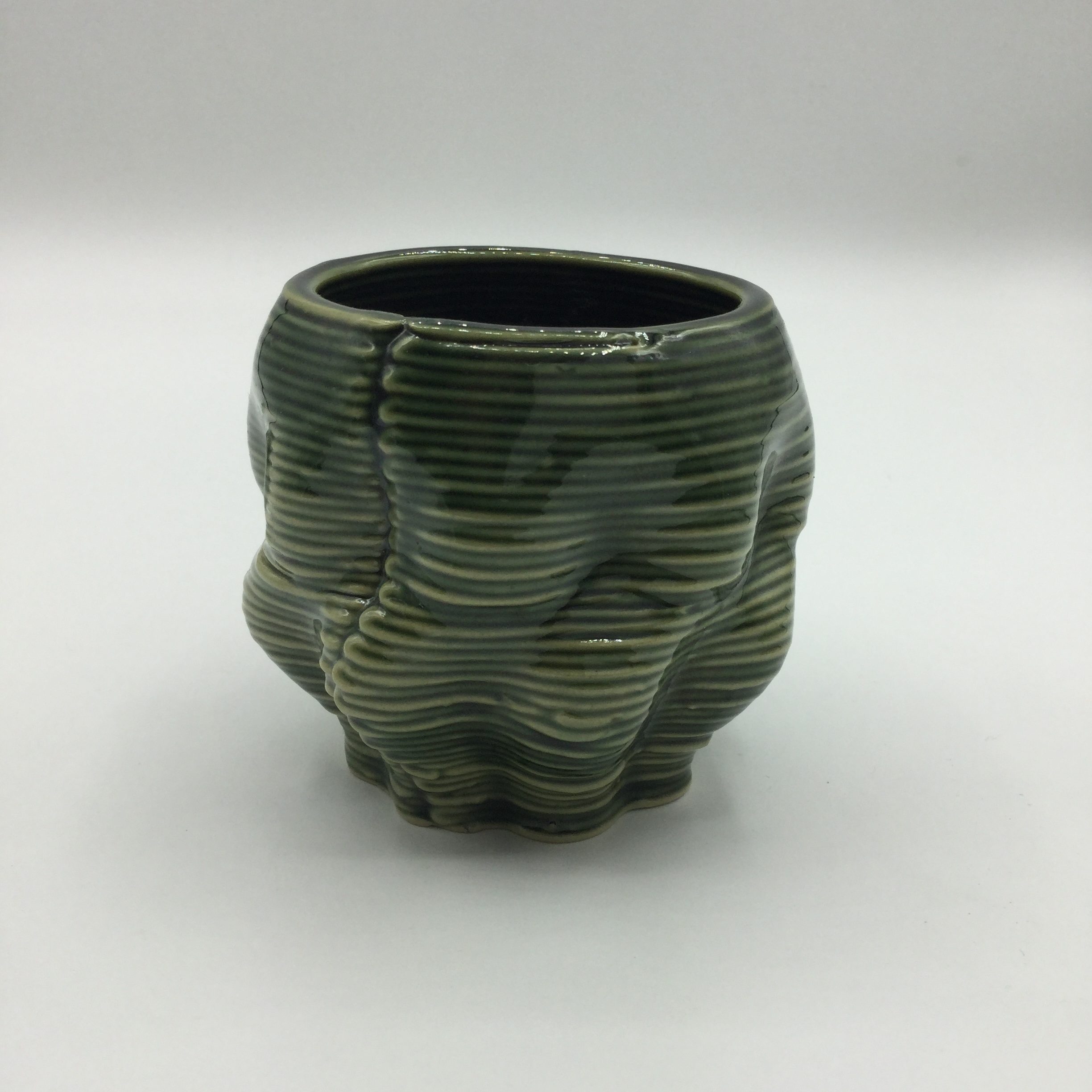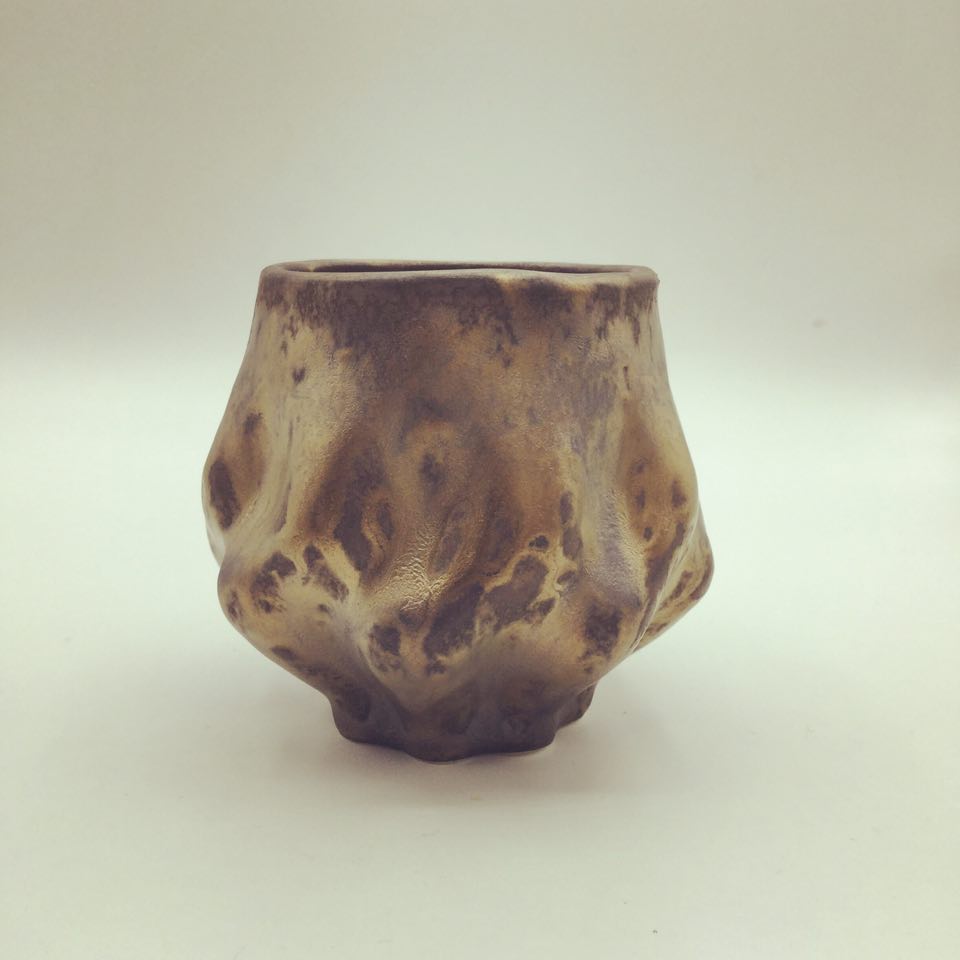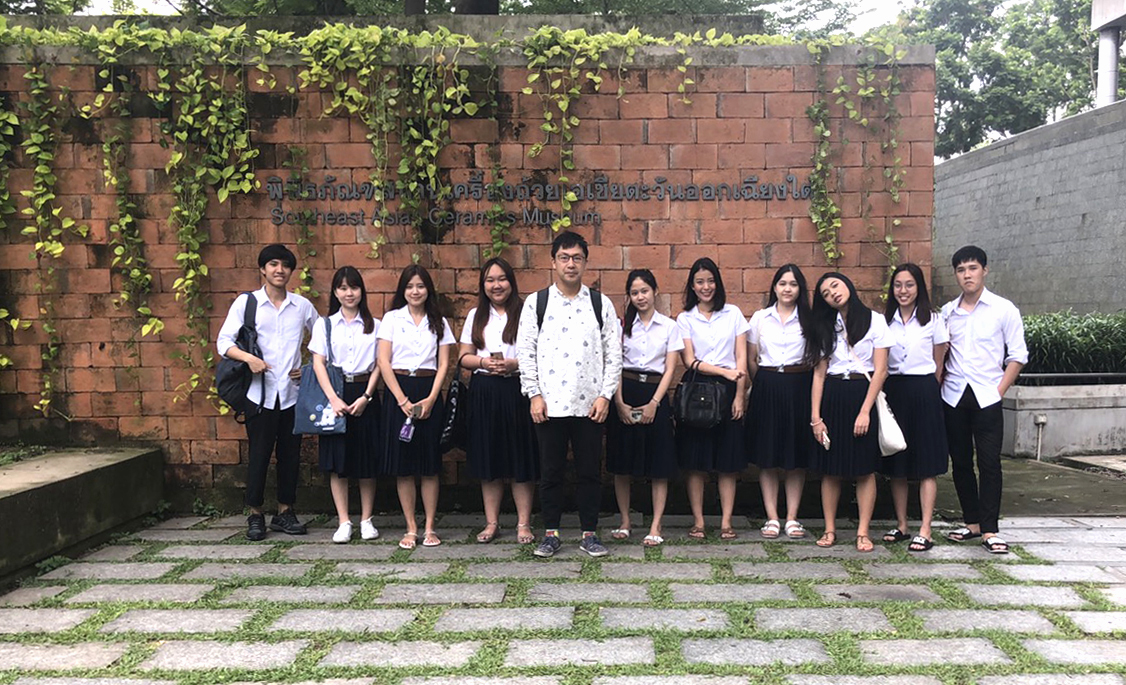In this workshop, students explored the potential of Thai ceramic culture by challenging ideas of digital fabrication, modern lifestyle, and traditional ceramics. Each student developed a novel product and a critique of current ceramic wares. In order to improve the design of the ceramic ware, students used a variety of techniques from manual hand pinching to electric wheelers, laser cut pressing, CNC pressing, rapid prototype plaster molding, and 3D ceramic printing. Students also visited the Southeast Asian Ceramic Museum to better understand masterpieces of traditional Thai ceramics. The outcome of the workshop was on display and available for purchase at Open House on the sixth floor of Central Embassy with the support of Shane Suvikapakornkul, the director of the Serindia Gallery.
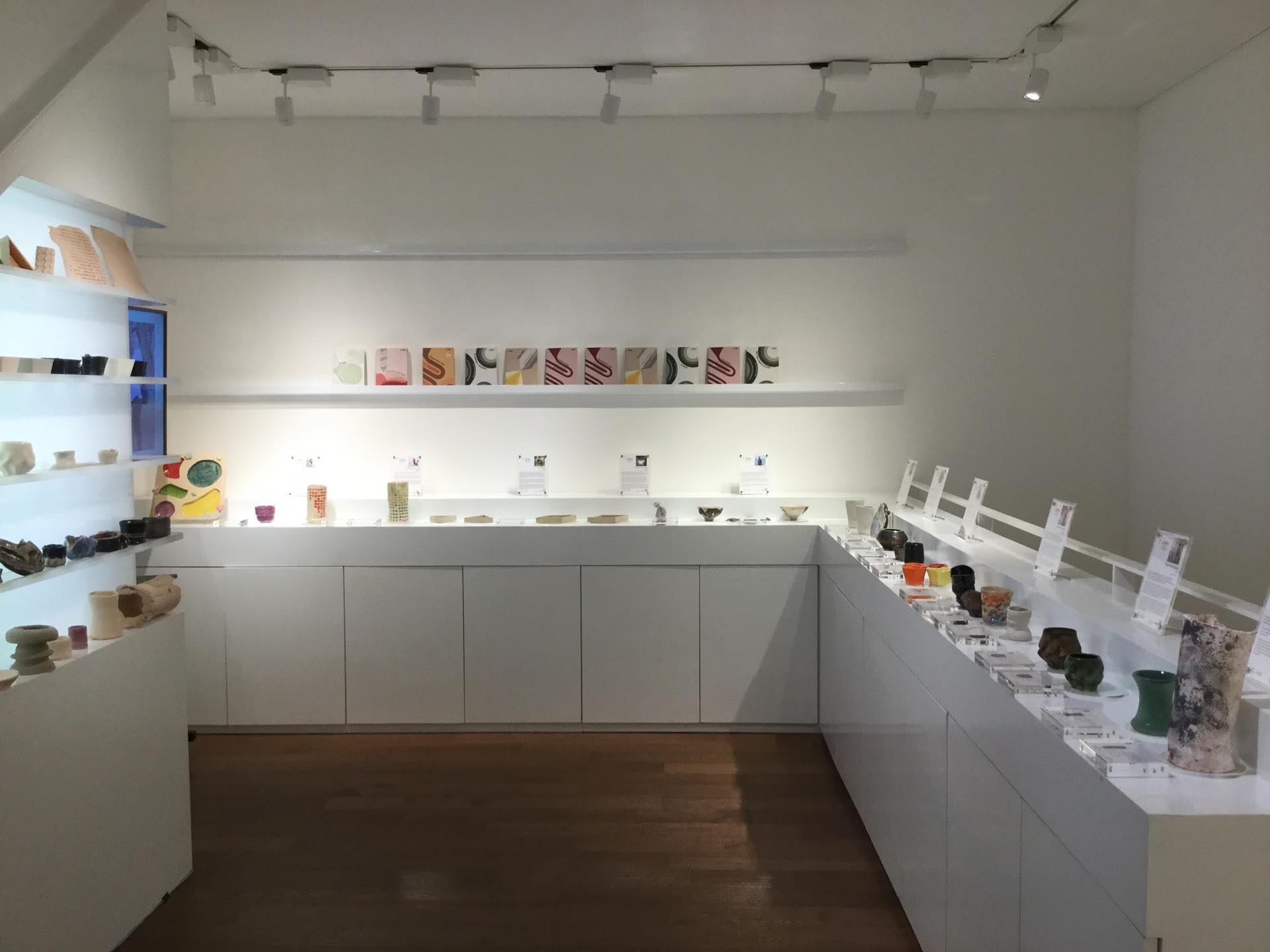
Todo Takanao
Bookshop by Hardcover
Bangkok Ceramics and Pottery Club
FabCafe Bangkok
Mo Jirachaisakul
Chompisa Amatayakul
Napat Kunapongkul
Krissada Laohongkiat
Prae Lertprasertkul
Nichapha Lumpikanont
Palika Nitisiri
Naruemol Pholnuangma
Nicharee Sammapan
Boonyavee Sureephong
Tatiya Visetrit
Panassaya Waenkew
Related Projects:
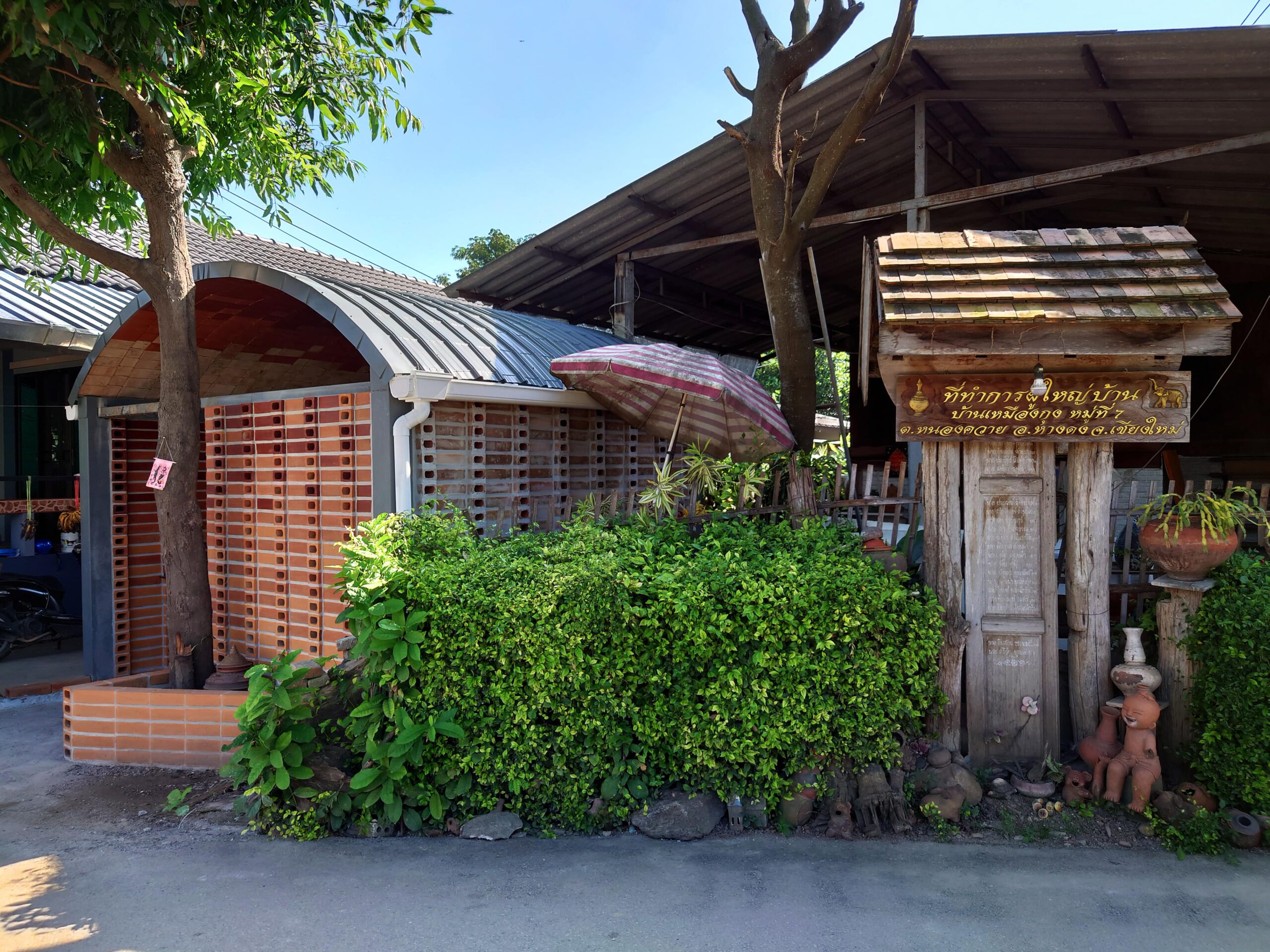
Ton-Tao Ceramic Pavilion
The Baan Mueng Goong Ceramic Pavilion reimagines a gallery for ceramic works. Inspired by the village’s ceramic kiln reflecting the history of their craftsmanship, the gallery creates an immersive experience resembling the interior of a large kiln surrounded with ceramic pieces crafted by the villagers of Baan Mueng Goong. The design includes ceramic bricks, ceiling tiles, and a cladding system to provide protection from the sun and rain, as well as improved airflow features. The pavilion’s gradient colors on the brick walls and ceiling tiles resemble the heat’s effect when firing ceramics. Within the interior is a showcase space using wooden wall-mounted displays designed and constructed to fit perfectly into the original brickwork of the Mueng Goong village. These elements are designed to be rearrangeable, allowing for various display styles. Moreover, they can be adapted for future displays of additional ceramic works. The pavilion not only gathers various craftsmanship from the community but also creates a place for visitors to learn and embrace ceramic works.

Rebirth
Rebirth is a lighting design project that explores revivalism by transforming plastic waste from a paint factory into a captivating sculpture. Musashi Paint Co.,Ltd. provided the plastic waste in the form of colored plates, which were assembled to depict dynamic movements of ascent or descent. The arrangement appears random, with clusters varying in dimensions. Embracing non-linearity and freedom, the composition aligns with the revivalist theme. While materiality plays a role, the focus lies on light and its configuration. The weaving and spiraling of light among clusters infuses the sculpture with a sense of life and rebirth. Pulsing and fading in rhythmic velocity, different parts of the composition come back to life, symbolizing rejuvenation. This sequence, combined with the physical structure, embodies the journey of rebirth and purpose within the realm of lighting design.
